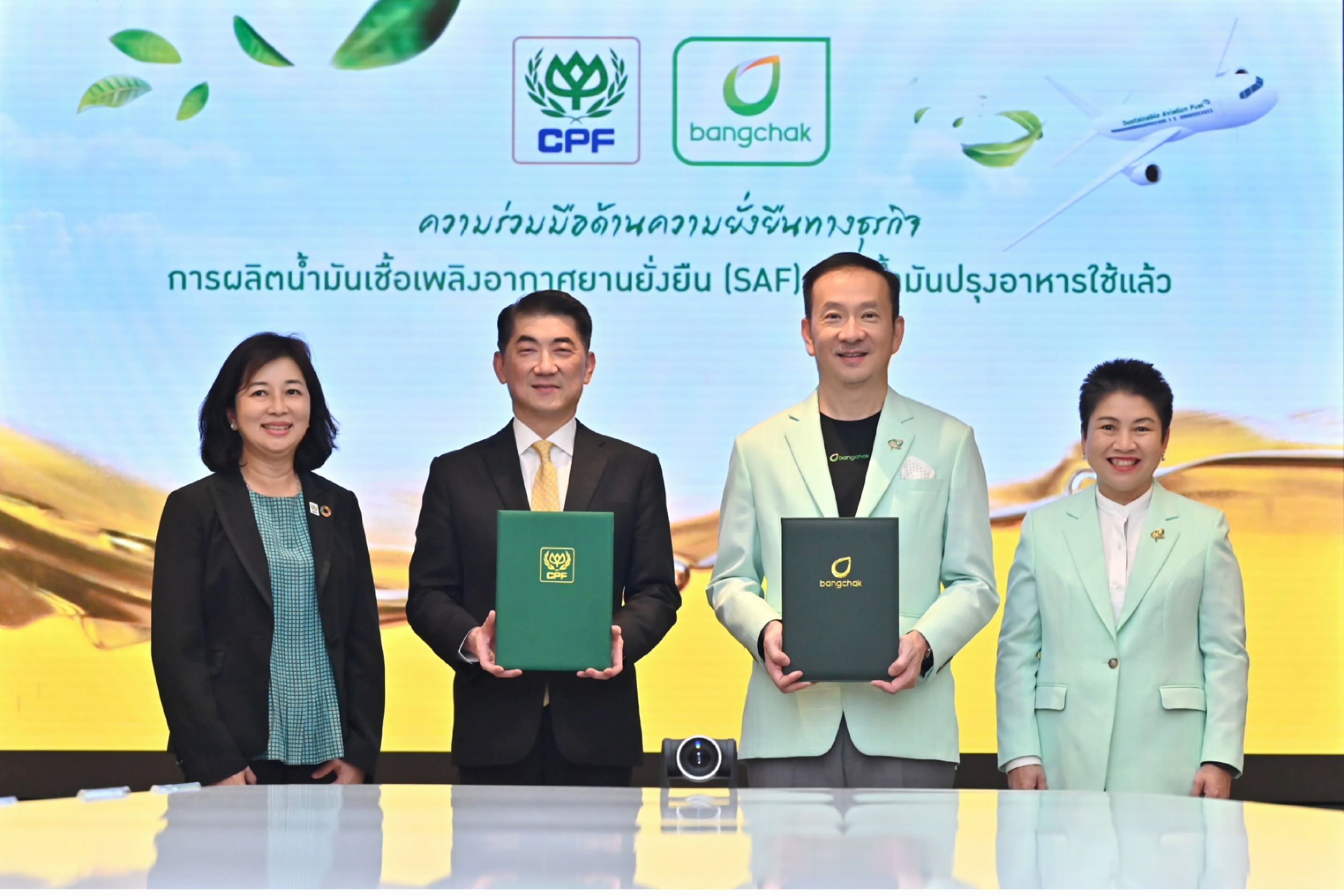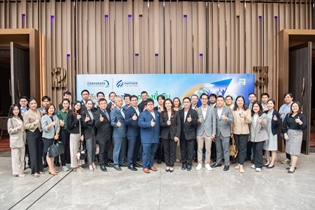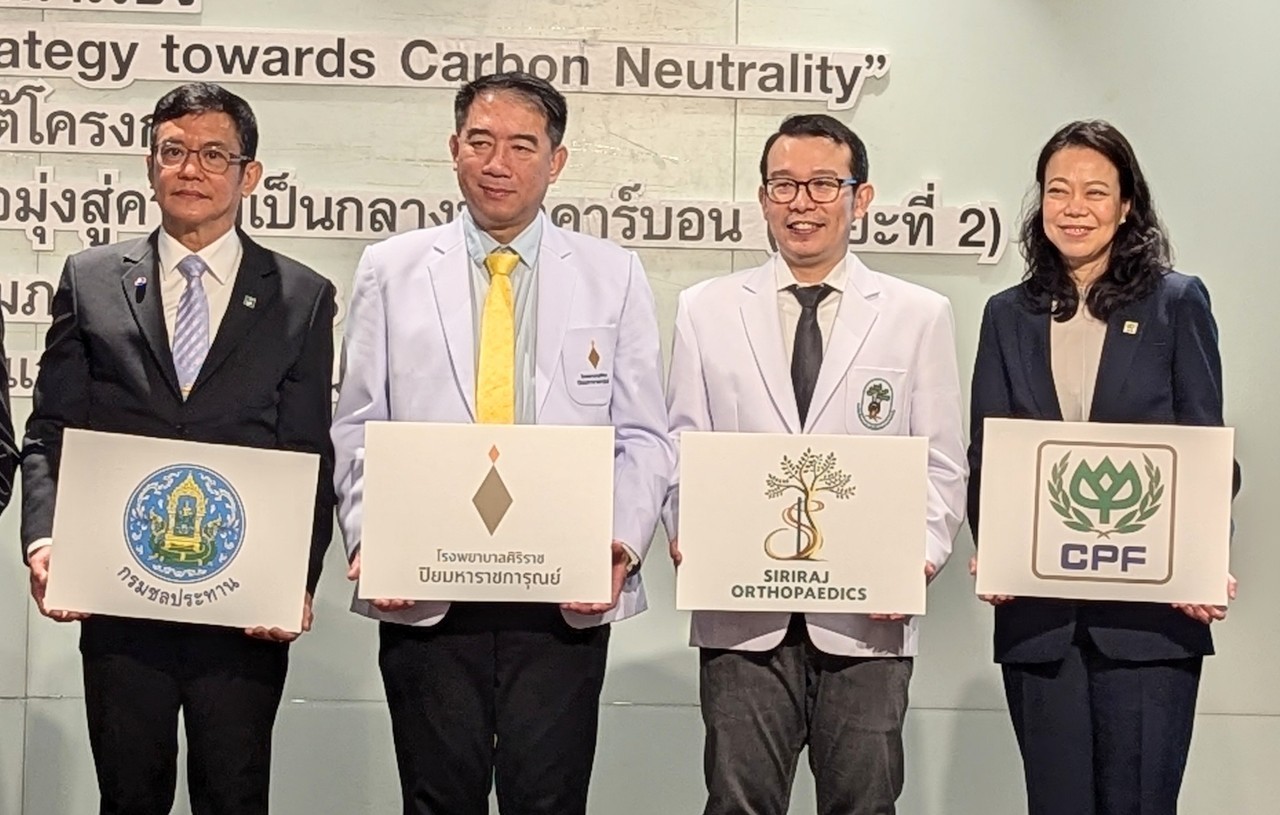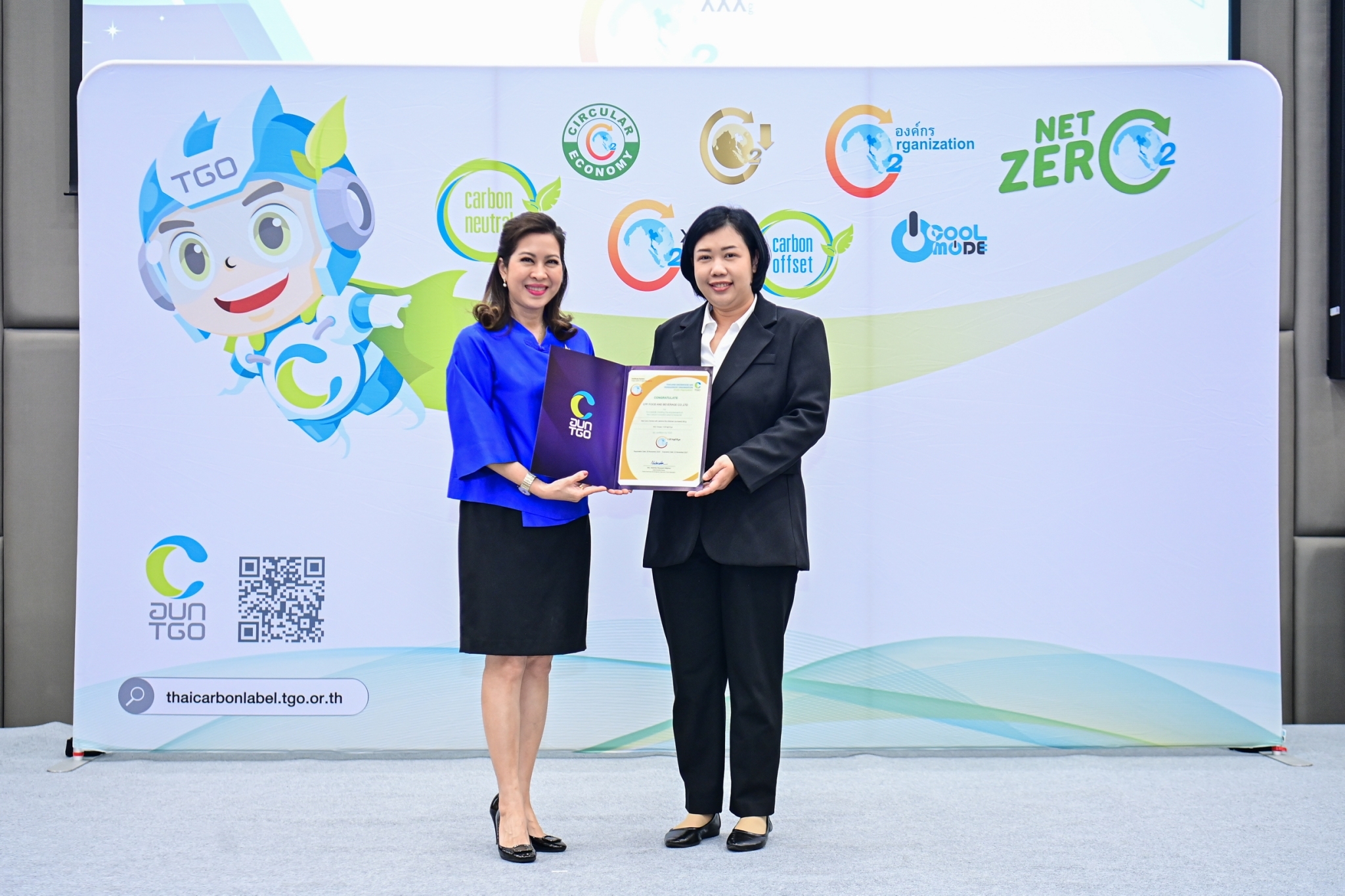

On 28 October 2024, Bangchak Corporation Public Company Limited and Charoen Pokphand Foods Public Company Limited (CPF) held a signing ceremony for a business sustainability cooperation agreement to produce Sustainable Aviation Fuel (SAF) from used cooking oil. Mr. Chaiwat Kovavisarach, Group Chief Executive Officer and President of Bangchak, and Mr. Prasit Boondoungprasert, Chief Executive Office of CPF, signed the agreement, with Mrs. Gloyta Nathalang, Senior Executive Vice President, Sustainability Management and Corporate Communications of Bangchak, and Ms. Kobboon Srichai, Head of Corporate Affairs and Investor Relations of CPF, served as signatories and witnesses. Executives from Bangchak, CPF, and BSGF Company Limited, a Bangchak affiliate, were present. The event took place at CP Tower on Silom Road.
Under the agreement, Bangchak and CPF will jointly manage used cooking oil and various fats from CPF’s food production facilities, including fats from CPF's wastewater treatment plants and affiliated companies, to produce SAF through BSGF.
Mr. Chaiwat Kovavisarach, Group CEO and President of Bangchak said, “We are thankful to CPF, one of the largest food service providers in Thailand, for joining the ‘Fry to Fly’ initiative to produce SAF, the energy of the future. This effort not only builds an economy based on the BCG (Bio-Circular-Green) model but also strengthens our collaboration on ESG principles, which are the cornerstone of sustainability today. It supports both business operations and makes a positive impact on the environment and society. This collaboration serves as a crucial driving force, enabling both companies to inspire positive change and create a sustainable future.”
This collaboration between Bangchak and CPF provides numerous benefits across multiple dimensions. Beyond adding value to food production waste in a fully circular economic model, it also promotes environmental and health sustainability. Used cooking oil from CPF’s restaurant brands, such as Chester’s, Five Star, Iron Pan, and Hainanese Chicken Rice, participates in the “No Repeat Frying” and “No Fry Left Behind” initiatives. These programs, implemented by BSGF in collaboration with the Department of Health under the Ministry of Public Health since 2022, aim to expand a network of socially responsible entrepreneurs focused on environmental care and improving quality of life and health for Thai people. Currently, more than 800 public and private sector locations nationwide are participating by supplying used cooking oil for SAF production. Transforming this oil into SAF supports a more eco-friendly aviation industry, reducing CO₂ emissions by up to 80% compared to conventional jet fuel, a significant step in addressing the climate crisis.”
Mr. Prasit Boondoungprasert, Chief Executive Officer of CPF, stated that CPF is committed to leveraging innovation to develop food products that are both beneficial for physical and mental well-being. At the same time, Bangchak is poised to convert used cooking oil from its production process into Sustainable Aviation Fuel (SAF), maximizing resource efficiency and reducing environmental impact. This aligns with CPF’s Sustainovation approach, which uses innovation to address food security and sustainable consumption. This collaboration focuses on managing used cooking oil (UCO) and fats from food production and CPF’s wastewater treatment facilities to produce SAF. Furthermore, there is potential to expand this initiative to CPF’s international operations in the future.
“This partnership marks a significant step in driving both companies’ sustainable business strategies and is part of broader climate action efforts. By managing waste reduction within production processes, we aim to minimize environmental and social impacts and create value in line with the comprehensive Circular Economy approach.”
The progress of BSGF’s SAF production unit, currently under construction at Bangchak’s Phra Khanong Refinery, is on track, with over 70% completion to date. Production is set to begin in early Q2 of 2025, with an initial capacity of 1 million liters per day.

Tag:
#Supplier






